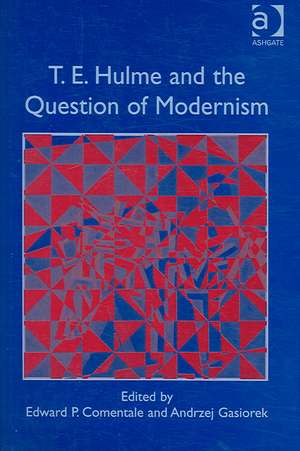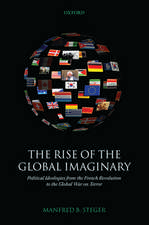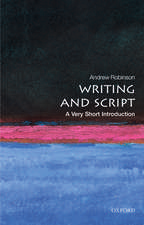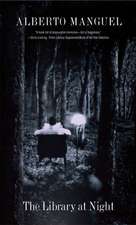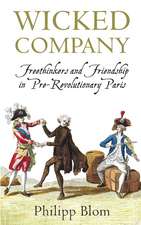T.E. Hulme and the Question of Modernism
Autor Andrzej Gasiorek Editat de Edward P. Comentaleen Limba Engleză Hardback – 13 noi 2006
Preț: 1057.09 lei
Preț vechi: 1289.13 lei
-18% Nou
Puncte Express: 1586
Preț estimativ în valută:
202.27€ • 211.76$ • 167.37£
202.27€ • 211.76$ • 167.37£
Carte tipărită la comandă
Livrare economică 05-19 aprilie
Preluare comenzi: 021 569.72.76
Specificații
ISBN-13: 9780754640882
ISBN-10: 0754640884
Pagini: 256
Dimensiuni: 156 x 234 x 16 mm
Greutate: 0.52 kg
Ediția:1
Editura: Taylor & Francis
Colecția Routledge
Locul publicării:Oxford, United Kingdom
ISBN-10: 0754640884
Pagini: 256
Dimensiuni: 156 x 234 x 16 mm
Greutate: 0.52 kg
Ediția:1
Editura: Taylor & Francis
Colecția Routledge
Locul publicării:Oxford, United Kingdom
Recenzii
'T.E. Hulme has tended to be sidelined in most accounts of literary Modernism. This collection of lively and absorbing essays returns him to center stage, exploring the range and vitality of his concerns as a subtle register of the inconsistencies and paradoxes of a Modernism more widely conceived.' Peter Nicholls, University of Sussex, author of Modernisms: A Literary Guide ’The valuable, well-researched contributions of Rebecca Beasley and Alan Munton offer substantial, new material on Hulme's forays into early-twentieth-century art criticism.’ English Literature in Transition
Notă biografică
Edward P. Comentale is Associate Professor of Literature at Indiana University-Bloomington, USA. He is the author of Modernism, Cultural Production, and the British Avant-Garde (2004) and the co-editor of Ian Fleming and James Bond: The Cultural Politics of 007 (2005). Andrzej Gasiorek is Reader in Twentieth-Century English Literature at the University of Birmingham, UK. He is the author of Post-War British Fiction: Realism and After (1995); Wyndham Lewis and Modernism (2004); and J. G. Ballard (2005).
Cuprins
Introduction, Edward P. Comentale, Andrzej Gasiorek; Chapter 1 The Imagery of Hulme’s Poems and Notebooks, Paul Edwards; Chapter 2 A Language of Concrete Things: Hulme, Imagism and Modernist Theories of Language, Andrew Thacker; Chapter 3 ‘A Definite Meaning’: The Art Criticism of T. E. Hulme, Rebecca Beasley; Chapter 4 Abstraction, Archaism and the Future: T. E. Hulme, Jacob Epstein and Wyndham Lewis, Alan Munton; Chapter 5 T. E. Hulme and the ‘Spiritual Dread of Space’, Helen Carr; Chapter 6 Hulme’s Compromise and the New Psychologism, Jesse Matz; Chapter 7 Hulme Among the Progressives, Lee Garver; Chapter 8 Towards a ‘Right Theory of Society’?: Politics, Machine Aesthetics, and Religion, Andrzej Gasiorek; Chapter 9 ‘Above Life’: Hulme, Bloomsbury, and Two Trajectories of Ethical Anti-Humanism, Todd Avery; Chapter 10 The Politics of Epochality: Antinomies of Original Sin, C. D. Blanton; Chapter 11 Hulme’s Feelings, Edward P. Comentale;
Descriere
Though T. E. Hulme was a poet, critic, philosopher, aesthetician, and political theorist who helped define several major aesthetic and political movements, he has until recently been neglected by scholars. Each of the contributors to this collection highlights a different aspect of Hulme's work; taken together the essays demonstrate a shared belief in Hulme's decisive importance to the emergence of modernism and to the many categories that still govern our thinking about it.
